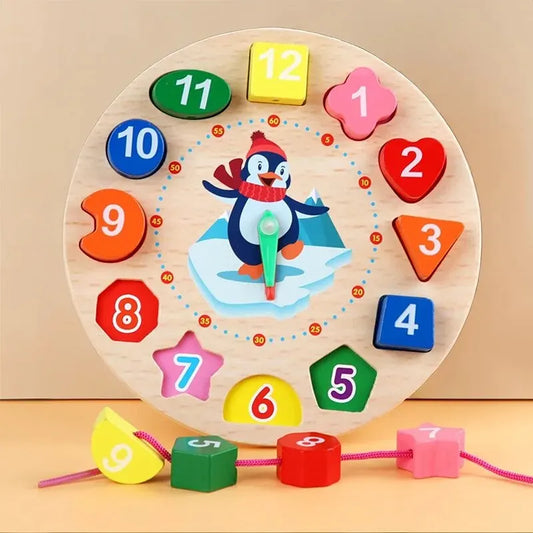Collection: 2-4 Year
Toys play a crucial role in the development and growth of children between the ages of 2 and 4. During this period, children undergo significant cognitive, physical, and social-emotional changes, and the right toys can contribute to their overall development in various ways:
-
Cognitive Development: Toys designed for this age group often encourage cognitive development by promoting problem-solving, critical thinking, and spatial awareness. For example, building blocks help children understand concepts like balance and stability, while puzzles teach them to analyze shapes and fit pieces together.
-
Fine and Gross Motor Skills: Toys that involve manipulating objects with hands and fingers (fine motor skills) or activities that engage larger muscle groups (gross motor skills) help refine children's physical abilities. Toys like stacking blocks, shape sorters, and ride-on toys aid in developing coordination, balance, and muscle strength.
-
Language and Communication: Many toys for this age group encourage language development. Interactive storybooks, pretend play sets, and toys with buttons that produce sounds or phrases foster vocabulary growth, sentence structure, and conversational skills.
-
Social and Emotional Development: Pretend play toys, dollhouses, and playsets allow children to act out scenarios and roles, enhancing their social and emotional development. Through these activities, they learn to express emotions, negotiate roles, and practice empathy.
-
Creativity and Imagination: Toys that encourage open-ended play, such as building blocks and art supplies, stimulate creativity and imagination. These toys allow children to explore different possibilities, invent scenarios, and express themselves in unique ways.
-
Sensory Exploration: Sensory-rich toys like plush animals, textured books, and water play tables provide opportunities for tactile, visual, and auditory exploration. These experiences help children understand their senses and the world around them.
-
Problem-Solving Skills: Toys that present challenges, such as puzzles and games with simple rules, help children develop problem-solving skills. As they figure out how to match shapes, complete puzzles, or accomplish tasks, they build confidence in their abilities.
-
Independence and Confidence: Toys that children can manipulate and control on their own encourage a sense of independence. As they successfully complete tasks or create things with their toys, they gain a sense of accomplishment and boost their self-esteem.
-
Parent-Child Bonding: Many toys designed for this age group can be used in shared activities with parents or caregivers. Playing together not only strengthens the parent-child bond but also provides opportunities for guided learning and modeling behavior.
-
Learning Through Play: At this age, children learn best through hands-on, experiential activities. Toys that allow them to actively engage and explore the world around them facilitate meaningful learning experiences.
Choosing age-appropriate toys that align with a child's developmental stage is essential for maximizing the benefits of play. These toys provide opportunities for children to learn, grow, and have fun while developing a wide range of skills and abilities.
















